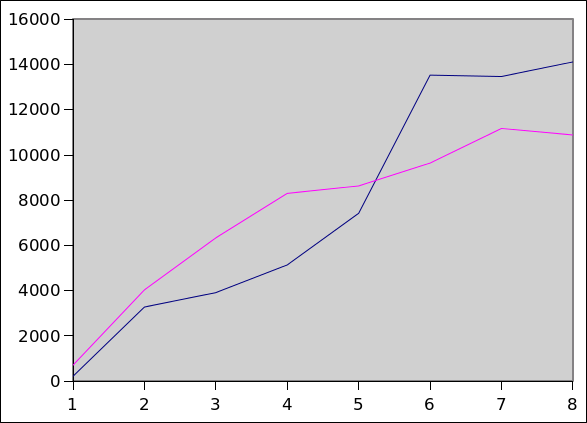Blocking synchronization (e.g., mutex locks) can limit scalability with respect to the number of threads.
Atomic machine instructions such as compare and swap (CAS) allow the possibility of creating lock-free data structures.
CAS works by atomically
- testing a memory location to see if it contains an expected value
- if it does contain the expected value, storing a new value in the memory location
CAS can allow threads to make atomic updates to a data structure. A requirement is that each CAS operation must leave the data structure in a consistent state. (A mutex can guard a critical section with an arbitrary number of operations, so consistency is only required when the entire critical section completes.)
Java provides access to atomic machine instructions via the java.util.concurrent.atomic.Atomic* classes (such as AtomicReference, AtomicLong, etc.)
Example lock-free algorithm: Maged Michael and Michael Scott, Simple, Fast, and Practical Non-Blocking and Blocking Concurrent Queue Algorithms
Benchmark results:
The graph shows the amount of time needed to execute 10,000,000 enqueue/dequeue pairs on a queue using varying numbers of threads. The x-axis is number of threads, and the y-axis is time in milliseconds. The blue line is for a two-lock blocking queue implementation, and the magenta line is for the nonblocking queue described in the paper.
Queue implementations and benchmark code: ConcurrentQueues.zip

